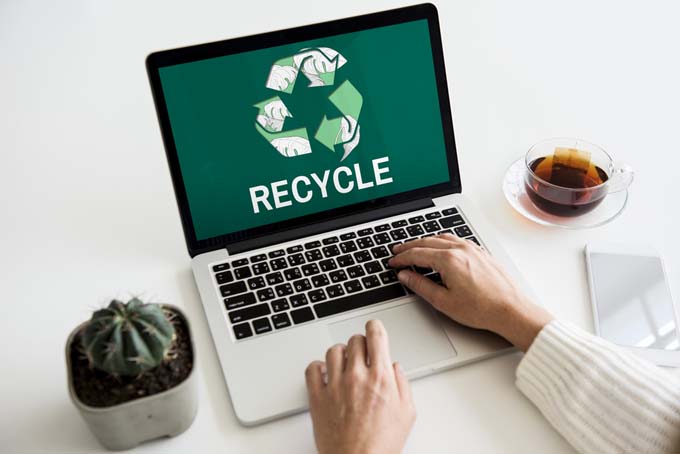Focus circular economy, a new series of events
Focus Circular Economy is dedicated to the topic of Circular Economy. The new series of events organized by swisscleantech and öbu, the association for sustainable business, aims to show that the circular economy represents more than recycling. In this regard, an interdisciplinary event around the topic of "circular building" will take place in November.

Focus circular economy touches a wide range of topics from design to remanufacturing, from logistics to maintenance to new business models. It can become a substantial competitive advantage for companies. The Circular Economy is a global megatrend in its nascent phase.
The concept is being taken up by a growing number of groups (e.g. CE 100, Ellen MacArthur Foundation). The EU even sees it as a growth engine for the economy and defined the term "EU Circular Economy" for this purpose. For Switzerland as a location for knowledge, research and development, the associated wave of innovation is a huge opportunity - if it is recognized and taken up.
Circular economy more than recycling
The term circular economy is quickly equated with recycling and deconstruction, but consistently closing the loop goes far beyond that. What does design for recycling mean for the building envelope? Which materials can be described as quality-preserving re-cycling and which materials are down-cycled with a loss of quality and properties?
And how first can it be worthwhile (with renewal cycles of 50 to 100 years) to invest in deconstructability and recyclable materials? Focus circular economy revolves around various aspects, such as:
- Legal and financial challenge - financing, insurance and legal issues for new business models, risks and possible solutions.
- Design principles - examples and function of biological and technical cycling, durable and repairable design, modularity, decomposability, and no ecotoxic chemistry.
- Materials - requirements for materials, research needs, supply chain issues, considerations for existing recycling systems.
- Closing the loop - design to close the material loop, including product recovery, disassembly and recycling.
- Business models - use instead of own, rent and service model instead of sales model, competitive advantages and interaction with cycle design.
- Culture change - restructuring of procedures and processes as well as motivation and further training of employees.
- Customer perspective - Circular products often have lower total cost of ownership: implications and opportunities for corporate purchasing departments.
- Ecological Benefits - Ecological evaluation of cycle design, optimal useful life of products, life cycle assessments.
More and more Swiss companies are addressing the topic of the circular economy and investing time to understand the aspects and opportunities relevant to them. The business associations swisscleantech and öbu are therefore launching a three-year series of events on the circular economy starting in November 2017.
Added value of a building?
During the series of events öbu on the one hand highlights central issues and topics of the circular economy, on the other hand discusses them across industries and also addresses current challenges and trends with specific topics. The theme of the upcoming event revolves around the building as a resource storehouse: from deconstruction to the consistent "design for recycling" of the building envelope to the economic recycling of the "circular building".
The newly launched "Madaster" - the world's first material register for building envelopes - will also be presented at the event. www.madaster.com/en/ How can the added value of a recyclable building be economically exploited? Turntoo/Rau Architects give an insight into experiments with adapted business models, modular building use and present the newly launched "Madaster" in Holland - a cadastre for building materials.
More about the fokuskreislaufwirtschaft event of November 14, 2017 "Construction industry - buildings as resource storage" can be found under this Link









